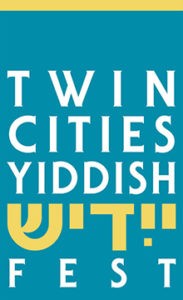 When people hear the word “Yiddish,” images of the Holocaust, Chassidic Jews or even Tevya from Anatevka may come to mind. In its prime, Yiddish was a language spoken by millions of Jews. However, its popularity, and perhaps necessity has died along with various immigration waves and Hitler’s destruction of European Jewry.
When people hear the word “Yiddish,” images of the Holocaust, Chassidic Jews or even Tevya from Anatevka may come to mind. In its prime, Yiddish was a language spoken by millions of Jews. However, its popularity, and perhaps necessity has died along with various immigration waves and Hitler’s destruction of European Jewry.
Today Yiddish is a language now spoken by less than half a million people worldwide. So why would the Sabes JCC host three weeks of Yiddish related festivities? And why would the community, even teens and young adults like me, be interested in hearing a speaker like Aaron Lansky, the famous preserver of Yiddish books? The bigger question is – Why, in 2013 should anyone care about Yiddish at all?
When I was younger, my Zeidy attempted to teach me (and all of his grandchildren) Yiddish. He would sit down and open up the book, “Der Yiddish Le’er” and cajole me into learning his “Mome Lashon,” his mother tongue. For the most part, I definitely lacked appreciation for his lessons. Zeidy told us that it was only because his mother, an immigrant from the “Old Country”, struggled so much with English, that he (being the kindest most empathetic man in this world) felt that his teeth should be broken over language acquisition, rather than hers. As I have grown, I have come to appreciate and love this language for the same reason as my Zeidy: it is, and will always be, my connection to my past and to my Zeidy. As long as I remember him, as long as my Zeidy’s Yiddish blessings for us remain on my tongue and in my heart, I will always have Zeidy and his language.
At a time when so many of us are less connected from our extended families, our roots, and our Jewish story, reengaging with Yiddish culture, if even for a night, provides a link to the people and places that ultimately brought us to America and helped to shape our Jewish community. Aaron Lansky’s story, dubbed, “The greatest cultural rescue effort in Jewish history” will inspire, delight, and help people of all ages understand the importance of Yiddish right now.
Yiddish is a language that profoundly captures the struggles, fears and joys of Jewish history. It is, for the most part, a language that grew out of a necessity for Jews to remain culturally separate from their host countries. Thus, Yiddish varies based on the region of origin of the speaker, and often divergences of dialect are very apparent. Yiddish connected Jews all over the world that may have otherwise been linguistically disjointed.
To me, Yiddish is a culture out of which a language grew and it is for this reason that I believe my generation should learn about the importance of preserving Yiddish. My peers and I have grown up with the State of Israel, an entity that links a fragmented Jewish Diaspora. Yet Hebrew, the language that would seem to be the Lingua Franca of world Jewry, is not spoken as the language of the Jewish people outside of Israel. What is it about Yiddish that, at least semantically, bonded Jews throughout much of the world and for many centuries?
I encourage young and old to attend events taking place during the Twin Cities Yiddish Fest I passionately invite all members of the Jewish community and beyond to hear Mr. Lansky and learn about his love of Yiddish as well as his colossal achievement in rescuing millions of the world’s Yiddish books would have been destroyed if not for his efforts. Mr. Lansky has dedicated his life to something larger than himself. Whether you admire ambition, or simply love Yiddish, Mr. Lansky, and the Yiddish Fest, are surely worth visiting.
Event Details:
Aaron Lansky Presents: Enormous Changes at the Last Minute: New Adventures in Yiddish Culture
October 6 at 7:00pm, Book signing to follow
Sabes Jewish Community Center, 4330 S. Cedar Lake Road, Minneapolis, MN 55416
Aaron Lansky, founder and president of the Yiddish Book Center, will recap early adventures to save the world’s Yiddish books and carry the story to the present with a rollicking account of new technologies and the young people using them to reclaim the cultural “flip side” of contemporary Jewish life.
Generously sponsored by Beryl and Florence Miller and family. Additional support provided by Kar-Ben. Due to our sponsors’ generosity, this event is now FREE to the public.
A full list of Yiddish Fest events can be found on the Sabes JCC website.

